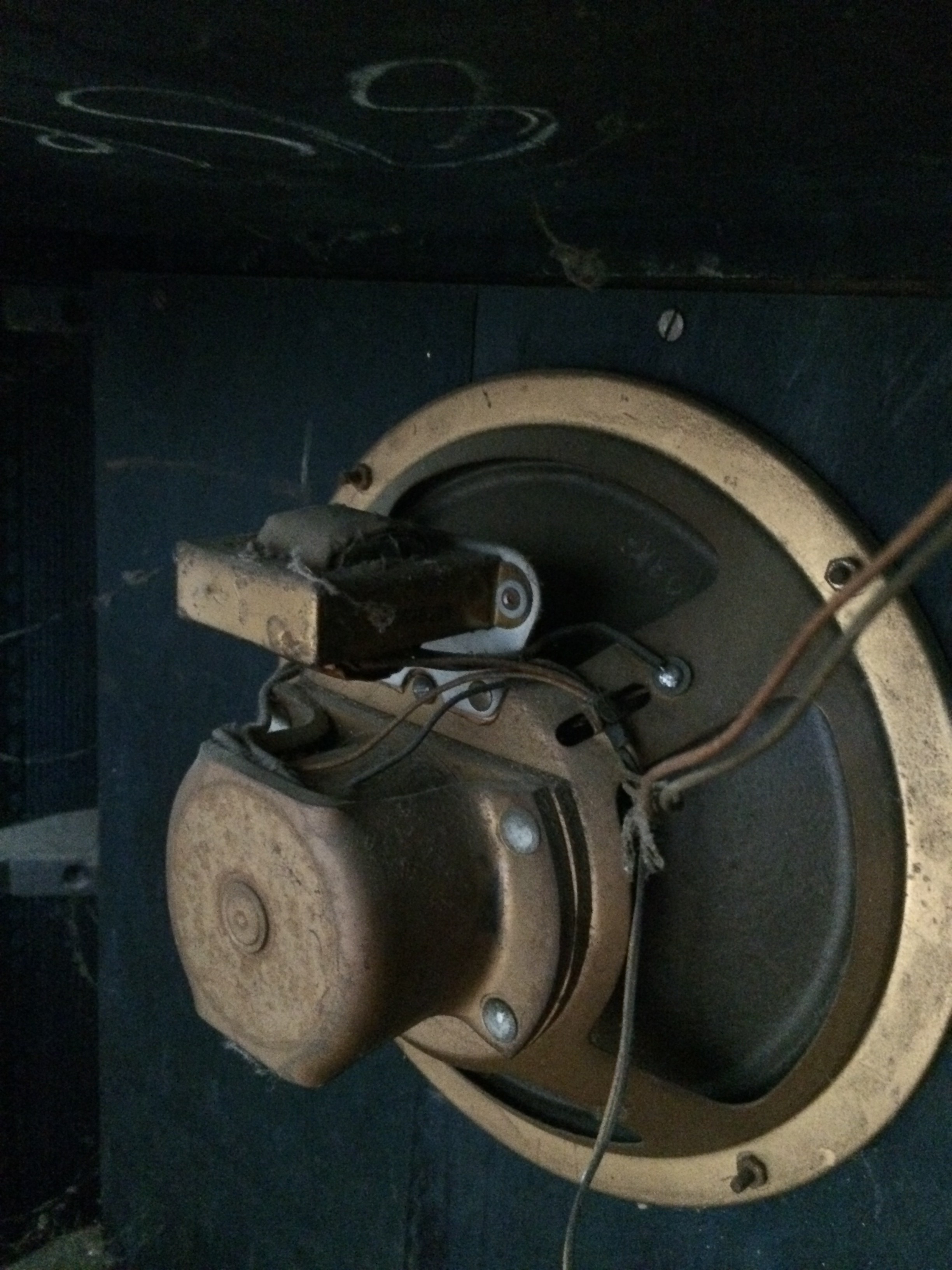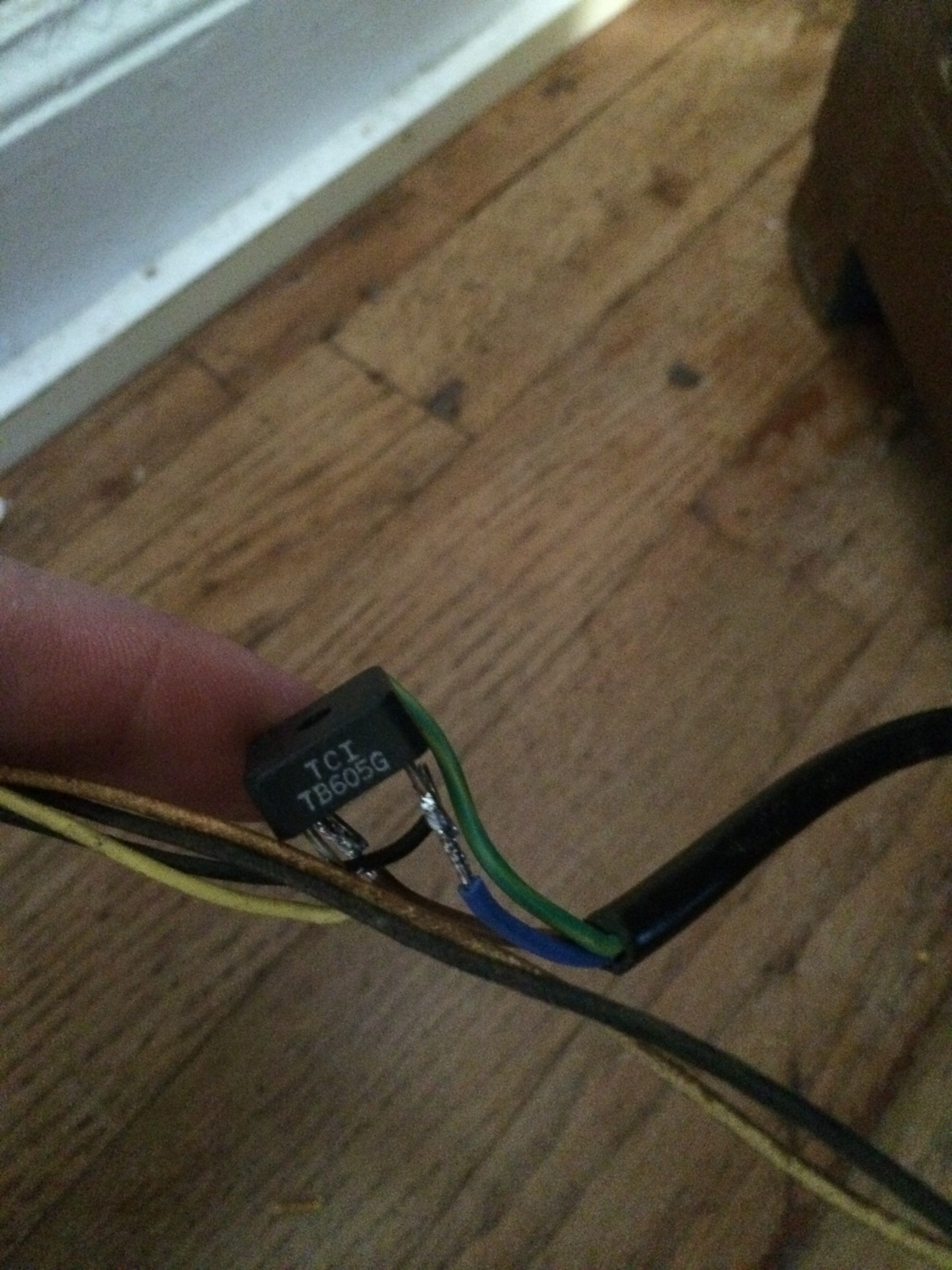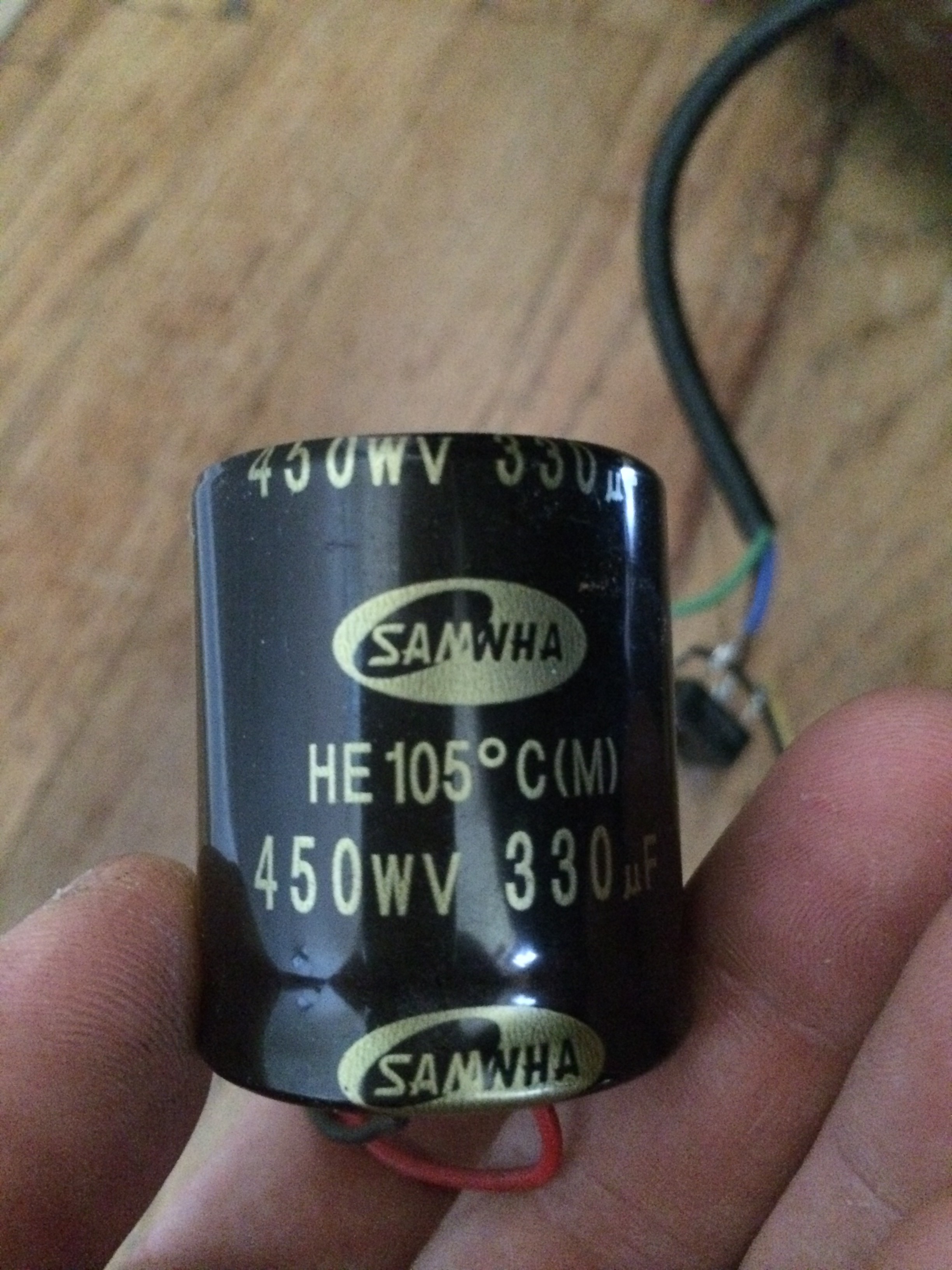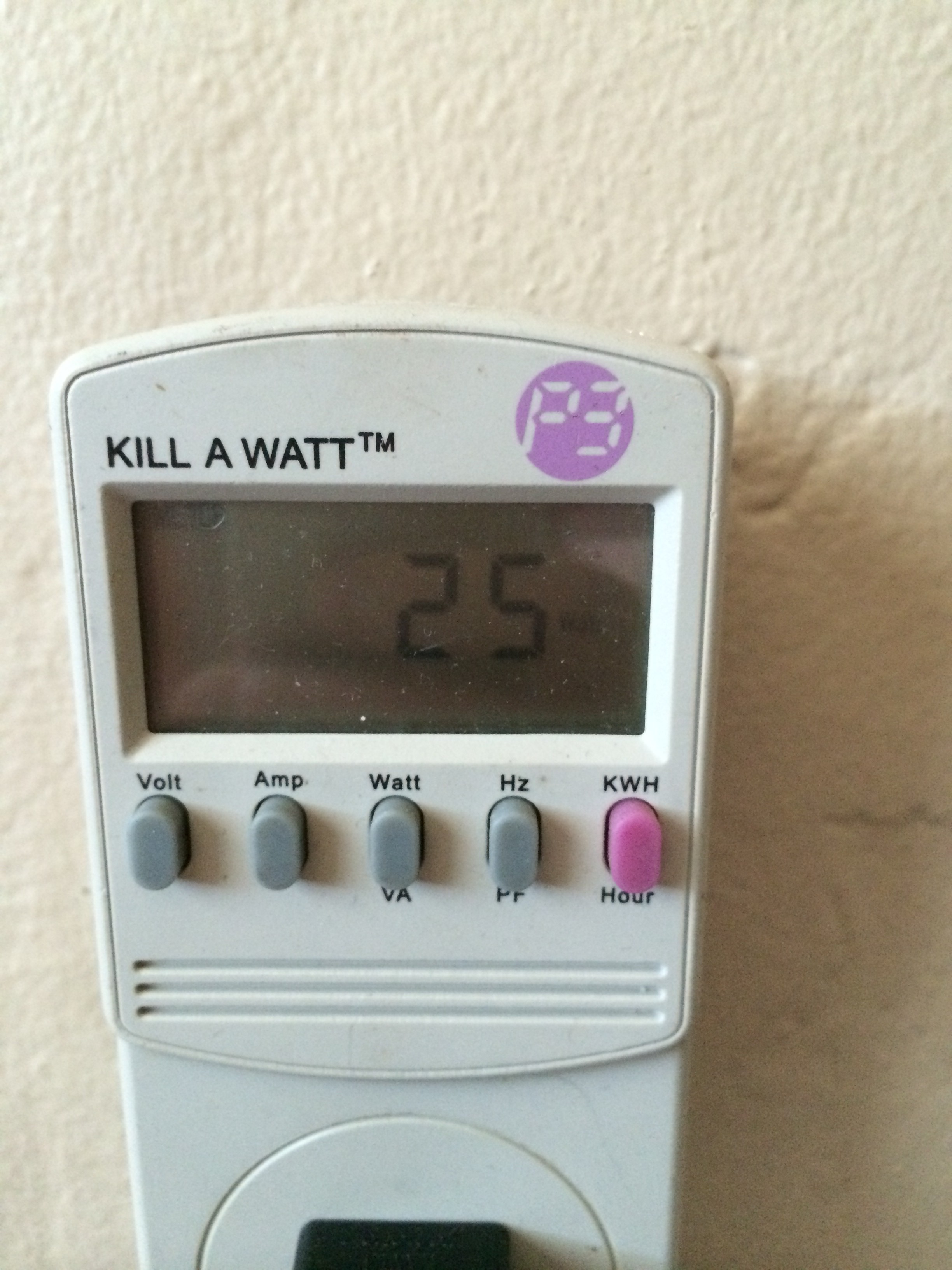
This is the original, 74 year old speaker in this unit. While I probably won't use this for the primary audio output, I do want to have it functional. Zenith was really thinking outside the box when they designed this unit. One of their unique ideas was to not use a permanent magnet on the speaker. Instead, they used an electromagnet. From what I've read online, the original tube system used the coil on this electromagnet as the "choke" in it's power supply system. Me, I just need to power that magnet up so the speaker works at all. I checked the resistance of this coil with a multimeter, and it shows just over 1k ohms. Some quick ohm's law on that, and I see that it'll draw about 14watts at 110 volts. So I don't need to use a transformer to step line voltage (what comes out of the wall) down, I can simply feed it straight into the speaker, after rectifying it (converting it from AC to DC). It has to be DC because you can't run an electromagnet off of AC.

That's a 25cent 6 amp bridge rectifier. Nice simple converts AC to DC, up to 700 watts.

I found that if I simply run the speaker off the rectifier, I get a pretty strong hum noise even with no signal running to the speaker. So I grabbed this old capacitor out of a dead plasma TV.
Due to the charge pump effect with the alternating voltage and the diodes in the rectifier, the voltage went up to 166v with the capacitor in the circuit. A bit higher than I had really wanted, but it still works.

I end up with a 25watt draw at the wall, just powering the speaker's electromagnet. I'll definitely need to put this on a solid state relay so the speaker is only powered up when I'm actively using it. If I find a transformer that can step me down from 120v to about 80, I'll use that in the future, for now this will work. The coil does not seem to generate any heat in my short tests (3-5 minutes).
 UnaClocker
UnaClocker
Discussions
Become a Hackaday.io Member
Create an account to leave a comment. Already have an account? Log In.